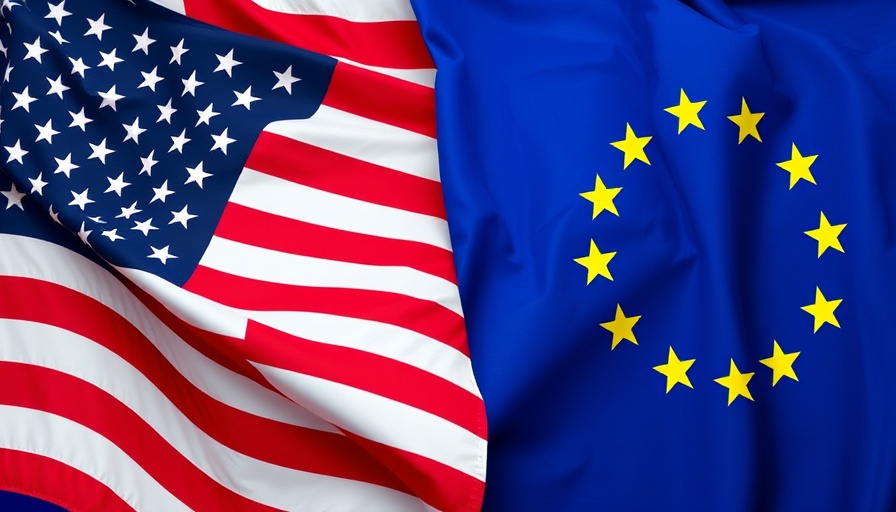
Navigating the Shifting Terrain of US-European Relations
The relationship between the United States and Europe, which has been a cornerstone of global stability for decades, is facing unprecedented challenges. Recent remarks from U.S. officials, especially under President Donald Trump's second term, reveal a growing rift characterized by accusations of freeloading and an ideological divide that threatens the very fabric of NATO and transatlantic cooperation.
In 'What's happening to US-European relations? | Inside Story,' the discussion dives into the escalating tensions between the U.S. and Europe, prompting us to analyze the broader implications on global stability.
Legacy of Conflict and Isolationism
A significant factor fueling the current tensions is the legacy of military interventions in Iraq and Afghanistan. For many Americans, especially those directly affected by war, there is a palpable sense of isolationism—a belief that global problems should not be America’s burden to carry. This isolationist sentiment has been underscored by Trump's rhetoric, which often paints European nations as dependent on U.S. military support without reciprocity.
The Burgeoning NATO Dilemma
Trump's concerns about NATO funding are not unfounded; many member states have indeed fallen short of the agreed defense spending targets. However, the manner in which these criticisms have been delivered has not only alienated allies but also created a narrative of competition rather than collaboration. As European nations scramble to bolster their defenses in response to perceived threats from Russia, the call for a unified strategy within NATO grows louder.
Rethinking Alliance Dynamics
The complexities of U.S.-European relations extend beyond defense spending. The European Union's mustering of a strategic response to the current geopolitical landscape marks a pivotal moment. If Europe is to solidify itself as a credible ally, a reevaluation of economic ties, trade policies, and mutual respect for sovereignty must take precedence.
In light of these discussions, European leaders must recognize that short-term tensions should not lead to a permanent fracture in U.S.-European relations. With shared priorities in global security and trade, there lies an opportunity to restore and, possibly, strengthen this crucial alliance.
The specter of U.S. military maneuvers in regions like Greenland poses a unique challenge. If history teaches us anything, it's that military aggression often begets further conflict.
Conclusion
As global citizens, particularly those in Africa who often mirror similar geopolitical dynamics, it is essential to remain informed about these developments. We must be vigilant, calling for a strong, united front that transcends ideological divides. Knowledge is power; let's demand accountability and ensure that our leaders pursue meaningful, equitable international relationships going forward.
 Add Row
Add Row  Add
Add 




Write A Comment